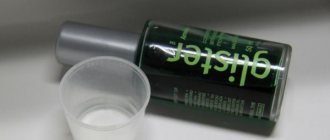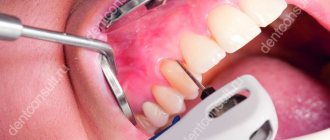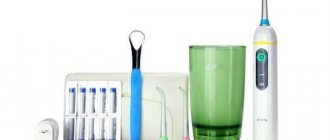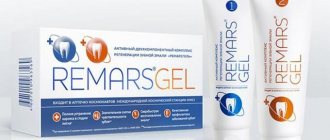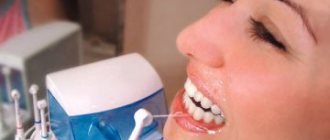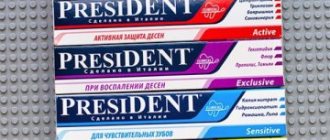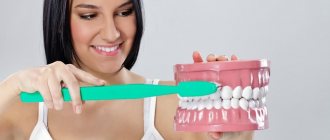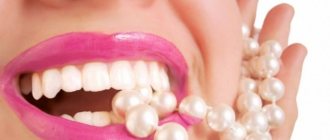People knew that they needed to brush their teeth after eating several thousand years ago. But until about the 20th century, only a few people could boast of healthy teeth. Most of the population did not pay due attention to oral hygiene. And in the arsenal of those who did take care of their teeth, there were not many cleaning devices.
Today, stores offer a variety of oral care devices and products. However, most people only use a toothbrush, although flossing also has its fans. According to the Dental Association, a toothbrush can remove about 30-40% of plaque. A regular toothbrush does not remove plaque from interdental spaces and hard-to-reach places. For oral hygiene to be truly effective, it is necessary to use several tools to clean your teeth. One of such devices is the Waterpik irrigator, you can buy it in St. Petersburg or another city in our stores.
Toothbrush
Despite the fact that a toothbrush by itself is not able to completely clean teeth of bacteria and plaque, it should be used daily. The hardness of your toothbrush should match your teeth type. If thin enamel is brushed daily with hard bristles, this will result in big problems with your teeth. It is better to consult your dentist regarding the type of brush hardness. A toothbrush can be used for no more than 3 months, after which it becomes a breeding ground for bacteria and germs.
There are traditional and electric toothbrushes.
Dentists often hear the question - which brush to choose? The answer depends on how much time you spend brushing your teeth. You need to brush your teeth for 3 to 5 minutes, spending time on each tooth. Many people brush their teeth on the go, resulting in little benefit from brushing. An electric toothbrush is better at removing plaque and can clean your teeth in just 2 minutes.
Oral hygiene rules
Regular teeth cleaning
You need to brush your teeth at least twice a day, and ideally after every meal. The brush movements should be directed from the gums along the outer or inner surface of the teeth towards their cutting edge. Movement across the teeth can gradually lead to thinning of the enamel.
For hygienic purposes, it is recommended to brush your teeth in the same sequence and at an even pace.
Timely replacement of hygiene products
Toothbrushes must be changed at least once every 3 months. This is due to the fact that pathogenic bacteria remain on the surface of the bristles, which during each procedure are again transferred to the oral cavity and can cause inflammation.
Regular visits to the dentist
Even in the absence of toothache or other unpleasant symptoms, it is recommended to visit the dental clinic at least once a year.
The doctor will conduct a preventive examination and, if necessary, prescribe the necessary hygienic or therapeutic procedures.
Dental floss
Even the most modern toothbrush cannot get into the spaces between your teeth. But it is in these places that pieces of food get stuck, which then become a habitat for billions of bacteria. If you do not clean food from the interdental spaces, sooner or later caries will form in these places. Dental floss, or floss as it is also called, is a simple and at the same time very effective device for cleaning the spaces between teeth.
In pharmacies you can find various modifications of floss for cleaning teeth. Depending on the width between the teeth, you can select the optimal width floss. Floss can be waxed or unwaxed. Wax-impregnated dental floss is perfect for those who are just starting to use this device. However, non-waxed floss does a better job of cleaning the surface of the tooth. Use dental floss with caution to avoid damaging your gums. Most doctors recommend flossing daily before bed.
VISITING A DENTIST:
- Twice a year
Examination for early diagnosis of dental caries and its complications.
Examination to diagnose anomalies of the dental system and further orthodontic treatment.
Monitoring the condition of the gums and periodontal tissues.
Early diagnosis of cancer.
Recommendations for brushing teeth.
Selection of oral hygiene products.
Removing dental plaque and plaque (if necessary).
TEETH CLEANING:
The oral care procedure should be regular and carried out in the morning after breakfast and in the evening before bed.
Teeth brushing time – 3 minutes.
BASIC ORAL HYGIENE:
- Manual toothbrush/ electric toothbrush
- Toothpaste (as recommended by a dentist)
The toothbrush should be of medium hardness with rounded ends of the bristles, and have a small head (the working part corresponds to the size of two or three teeth). The brush should also have a bristle wear indicator, which will allow you to replace the brush in time. The recommended time to use a toothbrush is 2-3 months.
An electric toothbrush should have a round head and medium-hard bristles. When using an electric toothbrush, avoid excessive pressure and forward movements.
The use of electric toothbrushes is contraindicated in patients with a pacemaker or after a heart attack.
It is recommended to use toothpaste that contains fluoride. According to indications, it is possible to use toothpastes containing plant extracts and antiseptics.
ADDITIONAL ORAL HYGIENE PRODUCTS:
- Dental floss
- Rinse aid
- Foams
- Dental brushes
- Chewing gum (sugar-free)
- Tongue scraper
- Irrigator
Dental brushes are used to remove plaque from between teeth. It is especially important to use dental brushes for patients with periodontal diseases, fixed orthopedic and orthodontic structures in the oral cavity.
It is recommended to use dental floss before brushing your teeth with toothpaste, and if you use a mouthwash, then after toothpaste, before the rinsing procedure.
Dental floss, or floss, was developed specifically for cleaning the contact surfaces of teeth that are difficult to reach with a brush.
Flosses are made from special synthetic fiber. They can be waxed or unwaxed, round or flat. Dental floss with special preventive impregnations that strengthen tooth enamel in hard-to-reach places is also effective.
Mouth rinse is recommended as an additional hygiene product, because... It cleans the interdental spaces well and has a deodorizing effect. The rinse aid must contain fluoride and not contain alcohol. Rinse your mouth for 1 minute, do not swallow.
The use of dental rinses allows you to destroy a significant part of the bacteria remaining after brushing. By improving the condition of the gums, the risk of periodontitis and other dental diseases is reduced. Teeth rinses help maintain their whiteness, strengthen enamel, fight the formation of tartar and prevent the formation of caries.
Irrigation of the oral cavity is carried out using an irrigator by supplying a constant or pulsating stream of water under pressure. Has a cleansing, massaging and healing effect. The procedure time for the gum of one jaw is 2-3 minutes.
ATTENTION! The use of irrigators for oral hygiene cannot completely replace a toothbrush.
Foam is used to clean teeth when it is not possible to use a regular toothbrush. The action of foams is expressed in cleaning and leveling the acid-base balance in the oral cavity, which prevents the growth of dental plaque and the development of pathogenic microorganisms in it.
A tongue scraper should be used daily to remove plaque from the surface of the tongue.
Xylitol (xylitol) has pronounced anti-caries properties: it has a specific antimicrobial effect against the most cariogenic microorganisms, accelerates salivation, improves self-cleaning of the oral cavity and increases the ability of saliva to strengthen tooth enamel. The use of chewing gum containing xylitol is recommended after meals for 10-15 minutes.
ATTENTION! However, it must be remembered that excessive intake of xylitol into the body can lead to unwanted side effects, as it promotes diarrhea. The daily dose of xylitol for an adult is from 30 to 50 grams.
PROFESSIONAL ORAL HYGIENE (teeth brushing) is a system of treatment and preventive measures performed in a dental clinic, aimed at preventing the occurrence and progression of oral diseases. In this case, the doctor or hygienist removes plaque and tartar and polishes the surfaces of the teeth.
Professional oral hygiene should be carried out at least once a year.
NUTRITION:
Products that are healthy for teeth should contain a small amount of sugar and sufficient amounts of vitamins and minerals. It is beneficial to eat solid foods, raw vegetables and fruits.
Avoid eating sugar-containing foods (sweets, cookies, etc.) between main meals.
Avoid drinking sugary carbonated drinks.
Over the age of 18 years, it is possible to develop dental diseases such as caries, gingivitis, periodontitis.
CARIES
The cause of the development of this disease is irregular or lack of oral hygiene and consumption of high-carbohydrate foods.
To prevent dental caries, it is necessary to periodically visit the dentist for professional teeth cleaning and coating of teeth with fluoride-containing varnish.
GINGIVITIS
This is an inflammation of the gums, which is accompanied by bleeding when brushing your teeth. If left untreated, gingivitis can cause a disease called periodontitis.
PERIODONTITIS
This is an inflammatory disease of the periodontal tissues that surround the tooth. The disease is characterized by destruction of the bone structures of the jaw, loosening of teeth, and bad breath. If left untreated, it can lead to tooth loss.
LOSS OF TEETH
Must be compensated by timely prosthetics. Consultation with an orthopedic doctor is necessary in order to prevent dysfunction of the masticatory muscles and joints and reduce the risk of developing dentofacial anomalies.
Remember that you should contact your dentist before toothache occurs!
Description of the irrigator
This modern device is also designed for cleaning interdental spaces and hard-to-reach areas. Its action is to direct a stream of water to areas that require cleaning. An irrigator is quite an expensive thing, but its use can effectively clean teeth from stuck food, plaque and bacteria. Unlike dental floss, a brush for cleaning teeth or a toothpick, it is impossible to damage the gums with an irrigator. Using an irrigator is absolutely safe for enamel and gums. Modern irrigators are the best alternative to all devices for cleaning hard-to-reach places between teeth.
Why you need to use all hygiene products
It may seem that maintaining oral hygiene can be limited to using only one hygiene product. This is a big misconception. All dental hygiene products are complementary, but not interchangeable. Each product is in its place - a toothbrush is used in the morning and afternoon, dental floss after meals, a mouthwash for general strengthening of teeth and gums and freshening the mouth.
Modern manufacturers offer a wide range of useful dental hygiene products; you just need to decide which ones are right for you, based on the condition of your teeth and gums. Our dentists will help you with this. All you need to do is make an appointment.
In what cases should you sound the alarm?
It is important to notice warning signs in time and not to treat them with disdain. Noticed blood during regular hygiene procedures related to the oral cavity is a clear sign that you need to seek help from a dentist and treat your gums. Their excessive sensitivity is also a reason to sound the alarm. The gums should not swell or react to hot and cold foods with acute pain. Experts advise paying attention to whether the distance between the teeth has changed? If the answer is yes, you should be concerned.
